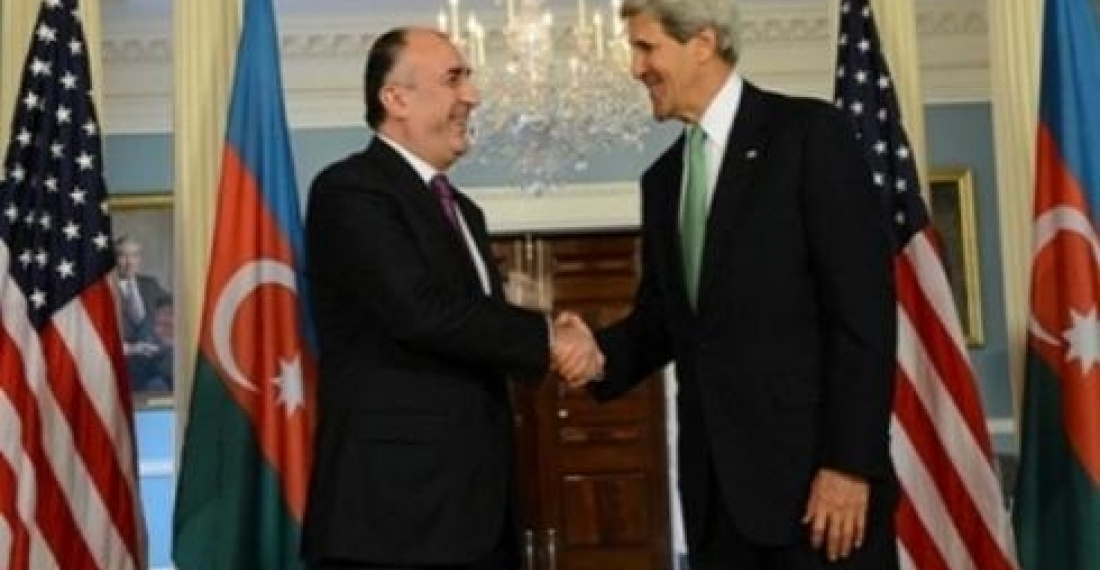The United States Secretary of State John Kerry on Monday afternoon met with the Foreign Minister of Azerbaijan Elmar Mammadyarov at the State Department in Washington. Issues on the agenda included the Karabakh conflict and the process of democratic state-building in Azerbaijan.
In remarks to the media prior to the meeting Secretary of State Kerry said:
"I've had occasion to talk with the President about Nagorno-Karabakh. And this is a frozen conflict, as we call it, one that threatens the stability of the region and one that we need to deal with. As co-chair of the Minsk Group, we have a serious interest - the United States - in helping Azerbaijan and Armenia to be able to find a path forward. The last thing we want is a return to war and to conflict. I believe there is a path forward, and we will continue to work quietly and patiently in an effort to try to encourage the parties to be able to take either confidence-building measures that may get to further down the road or to find a way towards a settlement with respect to this issue. Both have been close before, and at the last minute things have happened that have denied everybody that opportunity. So we have a big interest in that.
We also have an interest in seeing Azerbaijan continue to walk down this road, march down the road towards greater democracy to help build the pluralism of the country and ultimately to be able to find a way for peace and stability in the region and with its neighbors. Kerry thanked Foreign Minister Mammadyarov for his efforts in "trying to walk down this road together."
In his reply the Azerbaijani Foreign Minister said: "
"We consider Azerbaijan as a partner, your strategic partner, taking the consideration what Mr. Secretary said about the agenda of our cooperation with the United States and all of the issue which was indicated is definitely of the strategic nature. Of course, Azerbaijan, it's far from United States, but we still believe that to all these challenges which we're facing together with United States will successfully move forward, including on the - one of the biggest problem of the conflict resolution with the neighbor Armenia, with whom we are definitely and desperately interested to live in peace with dignity, always that there will be all the negative outcome of the conflict will be in the past, and we will look to the bright future of successful cooperation and living next to each other as a good neighborhood."
Asked if the United States was going to increase its engagement with the process of resolving the Karabakh conflict, Secretary Kerry said, "We are working on that. We're co-chairs of the Minsk Group. We have thoughts about how we can proceed down that road carefully and thoughtfully."
Commonspace.eu political editor said in a comment, "It seems that after a long pause the United States is ready to play a leading role in trying to resolve the Nagorno-Karabakh conflict. Kerry's meeting with the Azerbaijani Foreign Minister yesterday will be followed shortly be a meeting with the Armenian Foreign Minister. Kerry's statement yesterday indicates that the issue of Karabakh has now gone up in importance in Washington and that an American strategy for dealing with the problem is emerging. There was caution in the remarks of the Secretary of State. By stating that he wanted to proceed on the issue "carefully and thoughtfully", Kerry has shown that he understands the complexities of the problem and is ready to engage systematically towards its solution. This can only be welcome in the region and beyond."
source: commonspace.eu.
photo: US Secretary of State John Kerry welcomes Azerbaijani Foreign Minister Mammadyarov at the State department on 3 June 2013 (picture courtesy of the US State Department).







